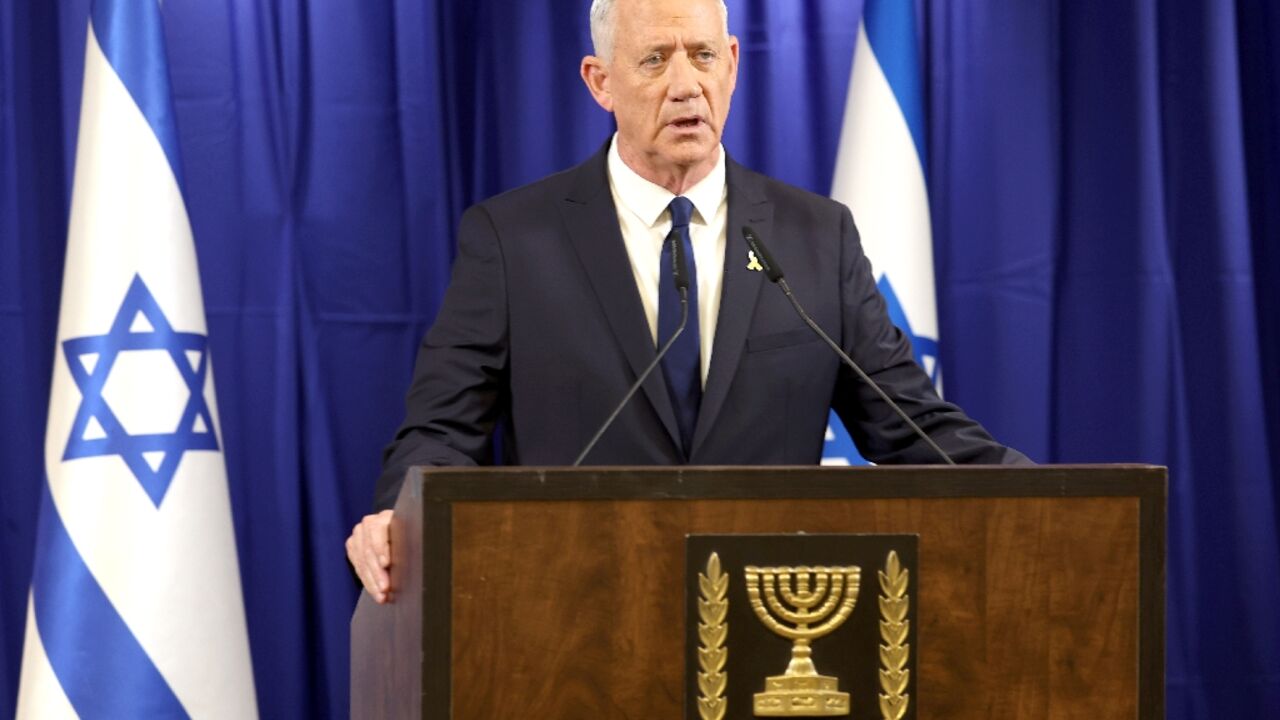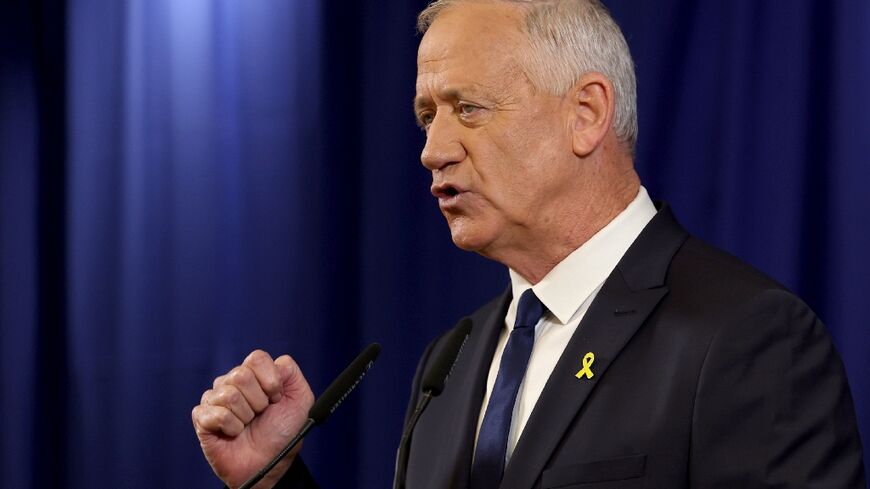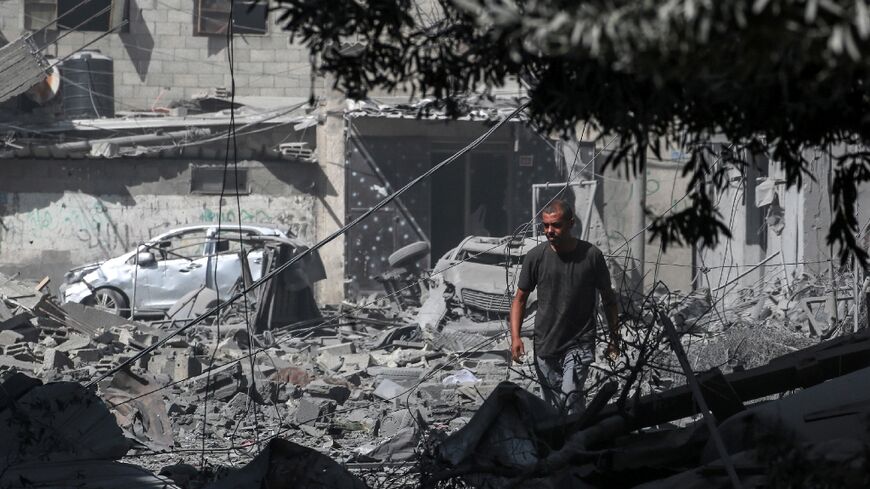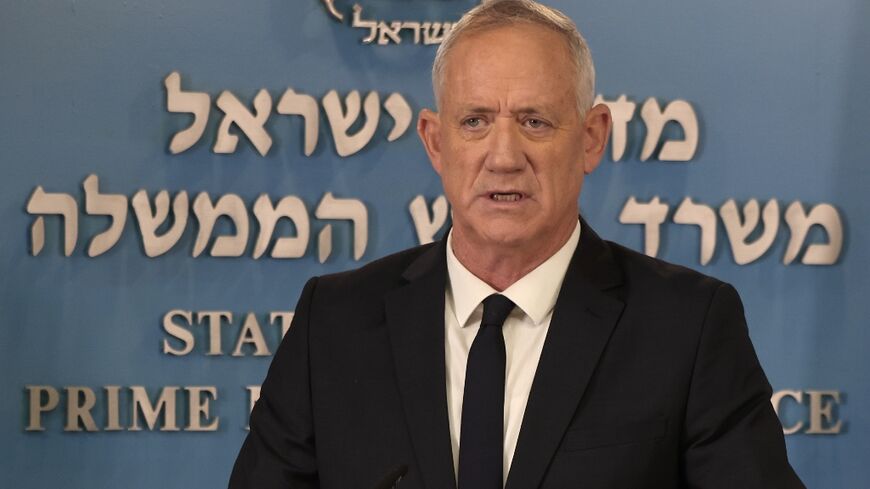Who is Benny Gantz, former Israeli general who quit Netanyahu’s government?

Benny Gantz, who quit Israel's war cabinet Sunday, is a centrist politician with dreams of toppling Prime Minister Benjamin Netanyahu's government.
The former army chief and defence minister had little political experience when he launched the centre-right National Union Party in 2019 with the explicit goal of ousting Netanyahu from power.
Five years later, the silver-haired Gantz is looking to ride a wave of mounting public outrage over Netanyahu's failure to return hostages held in the Gaza Strip more than eight months after the war with Hamas broke out.
The war began with the Palestinian militants' October 7 attack on southern Israel which resulted in the deaths of 1,194 people, mostly civilians, according to an AFP tally based on Israeli official figures.
Militants also abducted 251 hostages during their attack, 116 of whom are still held in Gaza, including 41 the army says are dead.
Days later, Gantz, who turned 65 on Sunday, joined a war cabinet chaired by Netanyahu and became a minister without portfolio in his rival's administration, labelled the "Unity Government".
"Israel above all," Gantz, one of the main opposition leaders at the time, said on social media.
But in a televised address on Sunday, Gantz announced: "(Benjamin) Netanyahu is preventing us from progressing to a real victory. That is why we are leaving the emergency government today with a heavy heart."
His departure is not expected to bring down the government, a coalition including religious and ultra-nationalist parties. But it is the first major political blow to Netanyahu during the war, reflecting rising domestic pressure over its conduct.
Israel's retaliatory military offensive targeting Hamas in Gaza has killed at least 37,084 people, also mostly civilians, according to the Hamas-run territory's health ministry.
- 'Only the strong survive' -
Gantz triggered the ire of Netanyahu's right-wing Likud party in March when he made an official visit to Washington.
He continued his political manoeuvring in the following weeks, calling for early legislative elections and issuing an ultimatum to Netanyahu: agree to a plan for post-war Gaza by June 8, or Gantz would quit the government.
Last month, his party said it had submitted a bill to dissolve parliament and hold an early election -- in which it would have little chance of success against Netanyahu's coalition.
Since his entry into politics, Gantz has fought several electoral battles against Netanyahu, without ever truly defeating him.
Early on, he tried to play up his defence background, releasing campaign videos in 2019 titled "only the strong survive" that highlighted military operations in Gaza.
He formed a power sharing alliance with Netanyahu in May 2020 as part of an effort to address the Covid-19 pandemic, but Netanyahu did not honour the deal.
That led to fresh polls in 2021, after which Gantz joined a coalition led by Yair Lapid.
"I hope to succeed in achieving unity, bringing as many people together as possible, freeing us from the political burden of Netanyahu," Gantz told AFP in 2022.
But his efforts failed and Netanyahu managed to form a coalition with the support of far-right parties.
Analysts said Gantz was unlikely to succeed in ousting Netanyahu even now.
"Gantz has gone down a lot in polls recently, because he's perceived as too soft, too hesitant, too complacent towards Netanyahu," political scientist Ilan Greilsammer told AFP.
- Hawkish image -
The son of Romanian and Hungarian immigrants who survived the Holocaust, Gantz has tried to cultivate a hawkish political image.
He has called for Israeli military control over most of the West Bank, which has been occupied by the Israeli army since 1967, as well as the annexation of the Jordan Valley.
He joined the army aged 18, rising to the rank of general in 2001 and head of the army in 2011, when he led two wars against Hamas.
"He did not leave an indelible mark on the army but maintained an image of stability and honesty," according to Amos Harel, a defence reporter at Israeli daily Haaretz.
Even as he sought to strike Palestinian groups responsible for anti-Israeli attacks, he simultaneously engaged in discussions to address "security and economic issues" with the Palestinian Authority, which has partial administrative authority in the West Bank.
In August 2022, as defence minister, he launched a three-day air and artillery operation against Islamic Jihad militants in the Gaza Strip.
In total, 49 Palestinians were killed, including fighters.
"It is a military success... We will not hesitate in the future to carry out other such operations," he said at the time.



